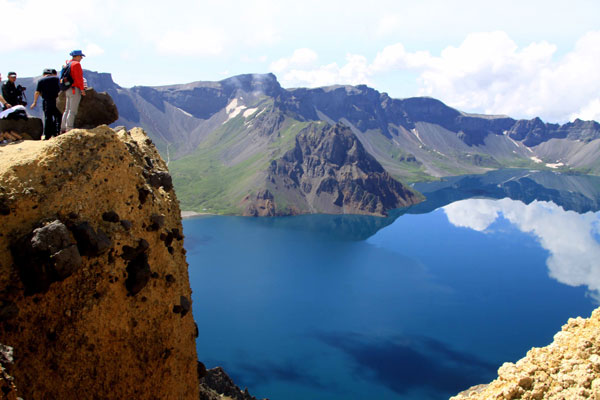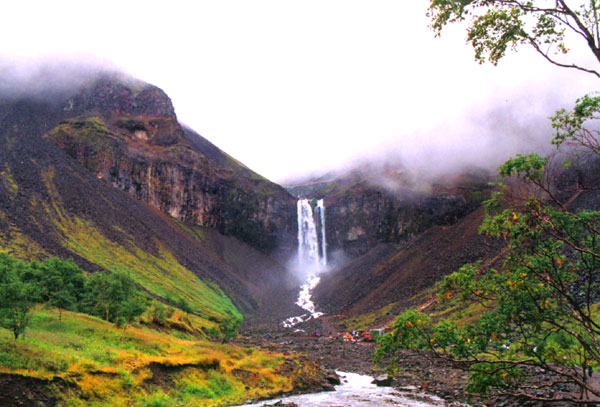Heights of fortune
 0 Comment(s)
0 Comment(s) Print
Print E-mail China Daily, June 6, 2013
E-mail China Daily, June 6, 2013
Ancient superstitions surrounding the numerology of the Dragon Boat Festival's date continues to inspire Chinese to climb mountains on this day. Zhang Zixuan explores some of the country's most majestic peaks for holidaymakers to ascend.
The tradition of climbing mountains during Dragon Boat Festival comes from the historical associations between misfortune and double 5s - the holiday falls on the fifth day of the fifth month of the lunar calendar. Ancient Chinese would scale peaks to collect such auspicious plants as Asiatic wormwood and peach branches to hang on doorways to ward off evil spirits. While the custom of using flora to fend off demons is rarely seen today, the practice of scaling alpine heights persists. We look at some of the country's most majestic mountains to ascend during the festival, which falls on June 12 this year.
 |
|
The country's highest crater-lake, Tianchi, is the prime attraction at Changbai Mountain in Jilin province. Photo provided to China Daily |
Changbai Mountain, Jilin
Changbai Mountain is a dormant volcano with an eruptive history in Jilin province's southeast.
Its most celebrated scenic spot is Tianchi Lake - the country's highest crater-lake and its deepest overall. It's hailed as one of "China's most beautiful five lakes".
The lake spills over a cliff as the Changbai Mountain Grand Waterfall. The cascade is adjacent to a 1,000-square-meter hot spring that bubbles from 13 mouths.
Visitors welcome the hot water, since temperatures on the mountain are freezing through much of June.
Snow sports are a major draw at Changbai, whose forest hides a 120,000-sq-m training base that hosts international skiing and ice-skating competitions.
Most locals are ethnically Korean, and celebrate their own as well as Han festivals. These observances include more than 300 traditional games, such as tug-of-war and wrestling. They spend Dragon Boat Festival swinging and standing on seesaws.
|
A spectacular waterfall on Changbai Mountain. Photo provided to China Daily |
The local cuisine includes stewed dishes and Korean-style pickled vegetables.
Locals also make rice cakes and steamed buns stuffed with sweet bean paste, which they freeze in crocks. They bury meat in snow, making use of the mountain's natural refrigeration.
The alpine range is known for three treasures - ginseng, pilose antler and marten - and rare herbal medicines. The mountain also provides liquor ingredients, honey, nuts and fruits.
IF YOU GO
? The Changbai Mountain Airport is China's first airport built for forest tourism. It offers round-trip flights to major cities such as Beijing and Shanghai.
? The Baihe Train Station is accessible from Changchun by Train No K953 or from Tonghua by No 4241. It's a three-hour bus ride from the station to the mountains.




